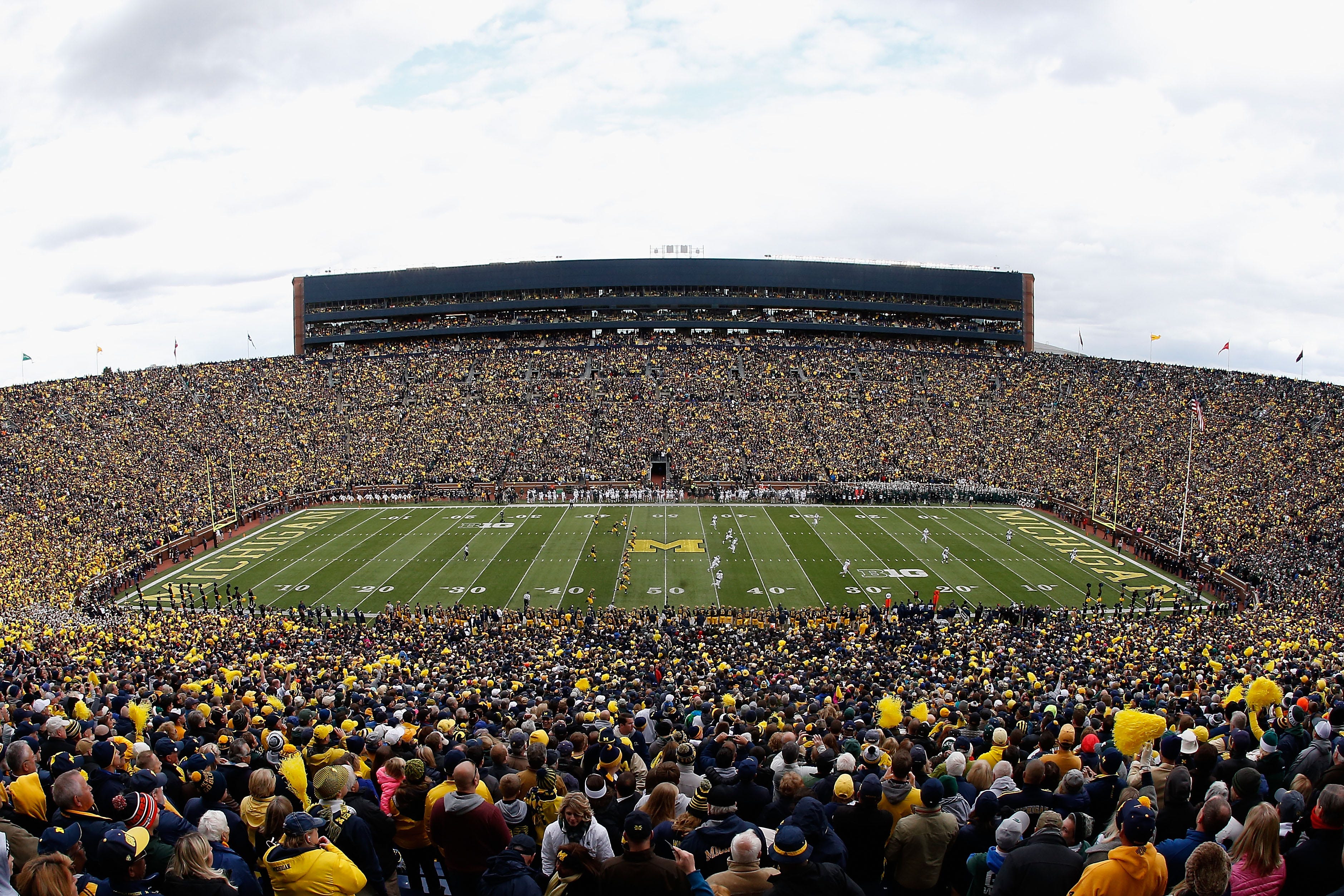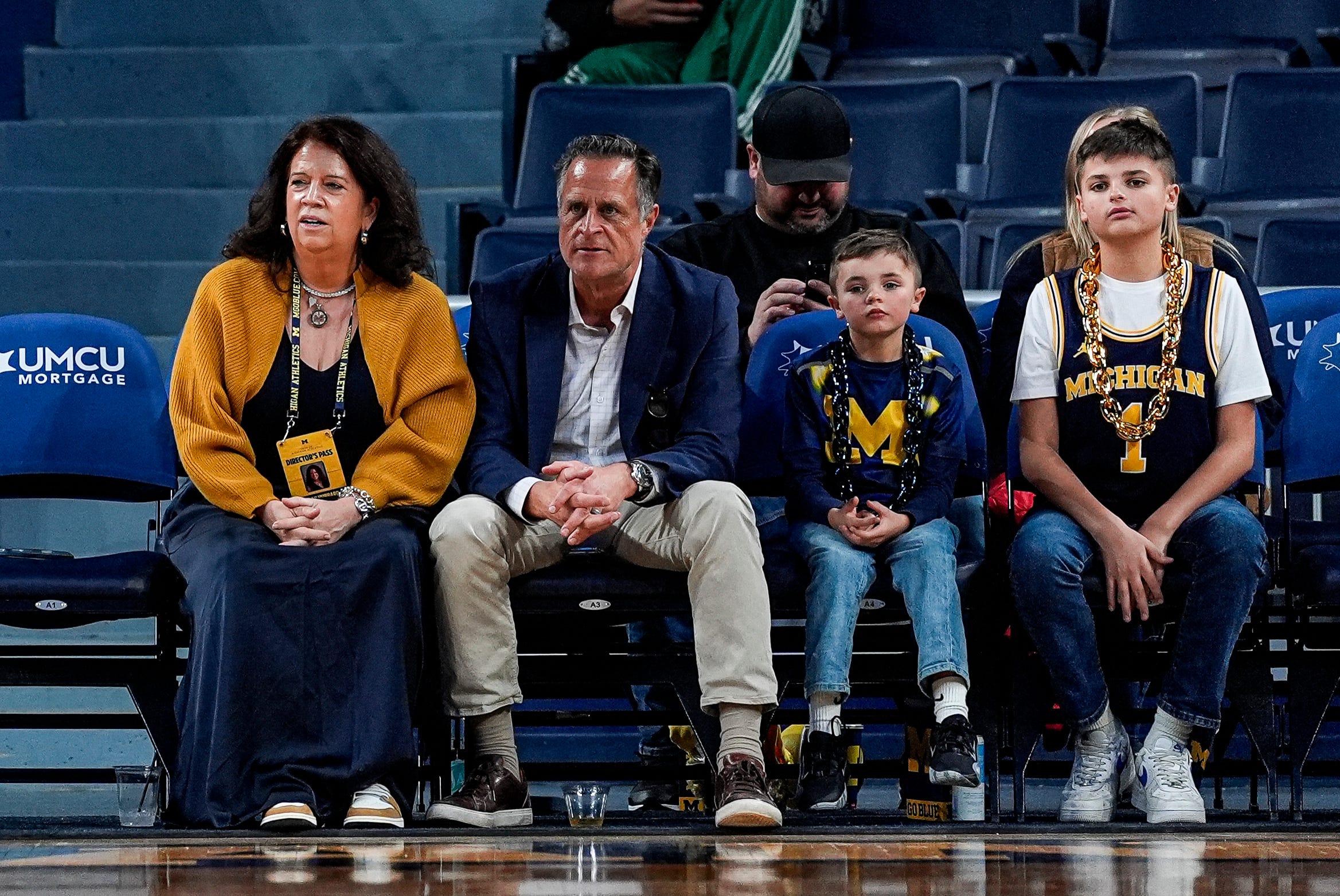The rhetoric around the Michigan football potentially leaving the Big Ten, which heated up earlier this week, took a slightly cooler turn on Thursday, Nov. 20 at a scheduled meeting of the Board of Regents.
The debate arose from reports in recent months of a potential $2.4 billion private equity deal that would provide an infusion of cash for the 18-team conference. The Michigan Board of Regents unanimously opposed the deal, citing concerns over who would a lack of autonomy in a privately funded sports league. While U-M's opinion hasn't changed regarding the matter, regent Mark Bernstein helped calm things down.
"The University of Michigan Board of Regents met today to discuss the current Big Ten Enterprises proposal – we remain opposed to this deal," he said. "Importantly, we're committed to the Big Ten conference and will continue to explore opportunities that address the pressing financial challenges facing Big Ten athletic departments."

The league is in the middle of a seven-year, $7 billion media rights package that runs through 2030, but with costs –such as revenue sharing with players under the House settlement – rising, many athletic programs remain desperate for funds.
As such, in recent months, the Big Ten, led by commissioner Tony Petitti, has had discussions with private equity firm UC Investments – the University of California system's portfolio manager – over a funding deal which would create a standalone company called Big Ten Enterprises.
As part of the proposed deal, UC Investments would earn 10% of the Big Ten’s media and sponsorship rights earnings for 15 years, after which it could sell its stake. The remaining 90% would be divided among the schools, with payouts varying based on a university’s earning potential.
That's the rub for U-M regents, who have stated they are looking out for the league's long-term interest.
"I think that it's clear that we're committed to the Big Ten conference," Jordan Acker said Thursday. "We're committed to not selling off our equity. ... We don't think it's necessary, we don't think it's prudent, we don't think it's a long-term judgment."
At an October board meeting, both Acker and Bernstein blasted the deal. Bernstein called it a "payday loan" as well as "reckless" and "short-sighted." Acker insisted the Big Ten did not need to be sold to "save college sports."
Earlier this week, Acker went on SiriusXM and expressed his discontent with the private capital plan. Among the potential issues, he said it would be hard for U-M to buy into the needed extension of the grant of media rights from schools – through 2046, under the deal – given it's unclear what the sport's financials will look like "four or five years from now."
Acker said tthen that "the possibility of independence for football is certainly something that has to be considered" if the Big Ten passed the motion without the approval of all 18 teams. Later that day, UC Investments announced it had paused the potential deal. On Thursday, Acker said he "can't see it happening at this point."
Acker and fellow regent Sarah Hubbard expressed frustration with the way Pettiti handled the talks, including that he didn't rule out the idea of exploring the deal without the backing of U-M and USC (which reportedly objected to the deal over concerns about a diminished payout for new league members).
“I think it's enormously disappointing the leadership we've seen from the commissioner's office over the last week,” Acker said. “I hope that we can work better together in the future, because this was not it.
“We're not looking to leave. I think that's the really important point here. We're not looking to leave the conference. We don't want the conference to leave us and when the commissioner is making threats, that makes things very difficult.”
While U-M and USC were the most vocal opponents, there was more unity among trustees and regents across the conference, according to Acker and Hubbard. Likewise, earlier this week, MSU trustee Mike Balow denounced the lack of transparency throughout the process.
Hubbard agreed there was not solid communication from top to bottom but said Thursday, "I feel that, at this point, we do have the information we need to make a good decision, and our decision still is that we are opposed.”

The deal would be a tiered system of cash infusion to various schools, with every team getting at least $100 million but some of the more successful programs – including U-M, Ohio State and Penn State – would receive around $190 million.
"It’s an obligation as a governing board for us to be more serious about looking for solutions, because clearly, athletic departments do need other sources of revenue, and it is a place where the conference can provide support," Hubbard said. "There are some good ideas in the proposal that could be used in a different way to help provide support for that revenue to our colleagues across the Big Ten. Let's dig into those."
Acker pointed to long-term deals made by the Pac-12, Big 12 and Atlantic Coast conferences – each of which have had friction as they attempt to negotiate a sports landscape with shifting priorities.
"We see what happened there, we want to make sure we're doing what's right for all of our institutions," Acker said. "We're the richest conference in college sports, but it didn't get there by accident. It happened through good stewardship over a long period of time."
Tony Garcia is the Wolverines beat writer for the Detroit Free Press. Email him at [email protected] and follow him on X at @RealTonyGarcia.
This article originally appeared on Detroit Free Press: Michigan on Big Ten private equity deal: 'Committed to the Big Ten'